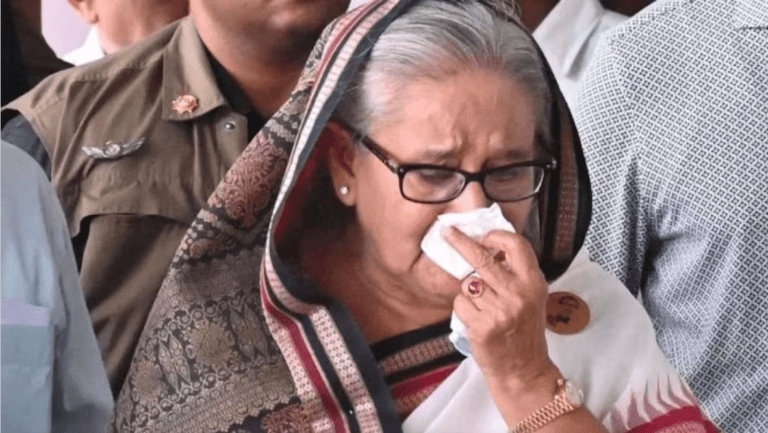In a dramatic turn of events, Bangladesh PM Sheikh Hasina announced her resignation from office and left for India in a military helicopter. This unexpected departure has not only stunned the nation but also caught the attention of international media.
According to reports, Sheikh Hasina’s resignation came as a surprise to many, as she had been a dominant figure in Bangladeshi politics for over a decade.
The decision to resign was reportedly influenced by escalating political pressures and a contentious election season. Following her resignation, authorities swiftly transported Hasina to India by military helicopter, sparking considerable speculation about her reasons for leaving the country so abruptly.
The resignation and the subsequent departure have raised questions about Bangladesh’s political stability and the future of its government. Analysts are closely examining the implications of Hasina’s resignation for both domestic politics and international relations. The abrupt nature of her departure, coupled with the use of a military helicopter, has fueled rumors about potential security concerns or political motivations behind her exit.
In response to the developments, a spokesperson for the Prime Minister’s office stated, “The resignation of Prime Minister Sheikh Hasina represents a significant moment in our nation’s history. We are closely monitoring the situation and will provide updates as more information becomes available.” This statement underscores the gravity of the situation and the uncertainty surrounding Bangladesh’s political future.
As the situation continues to evolve, observers are paying close attention to the potential ramifications for Bangladesh’s governance and its relationship with neighboring countries. The international community is also keenly watching to understand how this development might affect regional stability and diplomatic relations.
Bangladesh PM Sheikh Hasina’s sudden resignation and departure mark a pivotal moment in Bangladesh’s political landscape, and the coming days will be crucial in determining the next steps for the country’s leadership and its international interactions.


